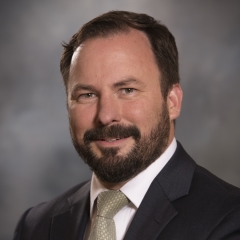When historians look back on this era, they will undoubtedly note the rapidly growing role of health care in our economy and in our lives. Health care spending now accounts for about one-fifth of America’s gross domestic product.
In the background is a massive shift in expectations. Our ancestors lived with untimely deaths from accidents and diseases as a regular part of life. Today, cures of diseases are almost expected, and afflictions that were once considered death sentences, such as cancer and heart trouble, are more and more manageable. Death no longer comes so much like a thief in the night, but rather like vague specter who waits patiently at the end of life’s very long road.
Along with this change in expectations comes the cost of a vast and ever-growing health care infrastructure; the U.S. now spends more than $10,000 per person on health care each year. In fact, the U.S. spends more than any other nation in the world.
Large parts of those expenditures go directly into the provision of care, drugs and technology. Other parts go into administration, regulatory compliance, advertising and billing operations. Still other expenditures go into the activities of public sector health agencies.
But where the cost hits most of us on a regular basis is in health insurance premiums. Utah Foundation’s latest report, Paying a Premium: What’s Driving Health Insurance Costs in Utah?, found that a whopping 61% of Utahns obtain health insurance through employers. This is the highest in the nation and significantly higher than the U.S. average of 49%. There are various reasons for this, including Utah’s small elderly population, low poverty rate and robust middle class. It suggests that Utah is placing relatively low demands on public sector health programs.
That said, the private sector is directly shouldering a large and growing burden. From 2006 to 2016, Utah employers’ insurance costs grew by about a third on an inflation-adjusted bases. Employees also saw significant increases in contributions, but only by about a quarter. Nationally, the opposite is the case; employee contributions have been growing much more rapidly than employer contributions. And the employee increases have been steep – over 40%.
These numbers appear to indicate Utah employers are taking on an increasing share of the burden. Utah employers also appear more benevolent than U.S. employers in general. For rank and file employees, that’s something to cheer.
But there’s more to the story.
The model for health insurance is mutating. Enrollment in high-deductible plans in Utah increased from 3% to 30% during the past decade. The average deductible for employer-sponsored plans in Utah both nearly doubled. While this means higher potential costs for employees who use health care, they should keep in mind that if their employers had not shifted to high-deductible plans, average premiums would have shot up even higher instead.
But there may still be hidden costs related to premium increases. Health insurance is one part of an employer’s overall compensation package, and some employers might seek to keep wages static to stay in the black as premiums rise. While it is impossible to know the extent to which health insurance premium increases helped depress wages during a period that contained the Great Recession, the period from 2006 to 2016 saw slow wage growth both in Utah and nationally. This probably made it harder for employees to pay for their premium increases.
Another unknown is the number of enterprises never born due to the pressure of insurance costs. We don’t know how many would-be entrepreneurs who, fearing the loss of insurance coverage through their employer, never venture off on their own. We don’t know how many would-be entrepreneurs who, putting pen to paper, can’t get the numbers to work once insurance costs are factored in.
Maybe those entrepreneurs should consider getting into an industry that is a quickly growing part of our economy. The health care industry comes to mind.
* * *
Peter Reichard is president of Utah Foundation, a nonpartisan, nonprofit research organization dedicated to improving our state. You can reach him at [email protected] and find the Paying a Premium report at www.utahfoundation.org.
Categories:


